 SACDA News2023
SACDA News2023
SACDA has been recognised as the Professional Body for Career Development Practitioners in South Africa.
Message from the CEO

MOBILISING THE PROFESSION
Career development practitioners are based in early childhood development centre’s, schools, colleges, universities, libraries, organisations, and communities. They are on the front line of assisting people to find and create decent and meaningful work.
SACDA is the professional body for career development practitioners in South Africa. Its mandate is to facilitate ethics, access, quality, and growth of career development practitioners, and for the profession in general.
It oversees ethics through a code of conduct, and advocates for the ethical rights of career development practitioners, and the public they serve on several policy initiatives and government forums.
At present, there is significant lack of access to quality career education and guidance in schools, and tertiary institutions. Learners are struggling with career decisions such as subject choice, tertiary selection, and work readiness. Learners need continuous and structured support to prepare for their transition from basic to tertiary education, and work.
The association is taking a proactive role to address this lack of access by partnering with industry through Corporate Social Responsibility. Career development practitioners, resourced by industry, support the future of its workforce, while still in basic and tertiary education.
This role aims to complement the provision of career support already being provided by government.
As a body, SACDA is building quality in the profession through having met the stringent requirements for recognition as a professional body with the South African Qualifications Authority (SAQA). It is also prioritising scientific rigour through the African Journal of Career Development (AJCD).
Finally, the continuous growth of career development practitioners is critical. As such, SACDA will be introducing further professional development opportunities that cover best practice.
The time has come for the career development profession to rise and fulfil its duty for all citizens.
Thank you, and take care, careers family.
SAQA Recognition as a Professional Body
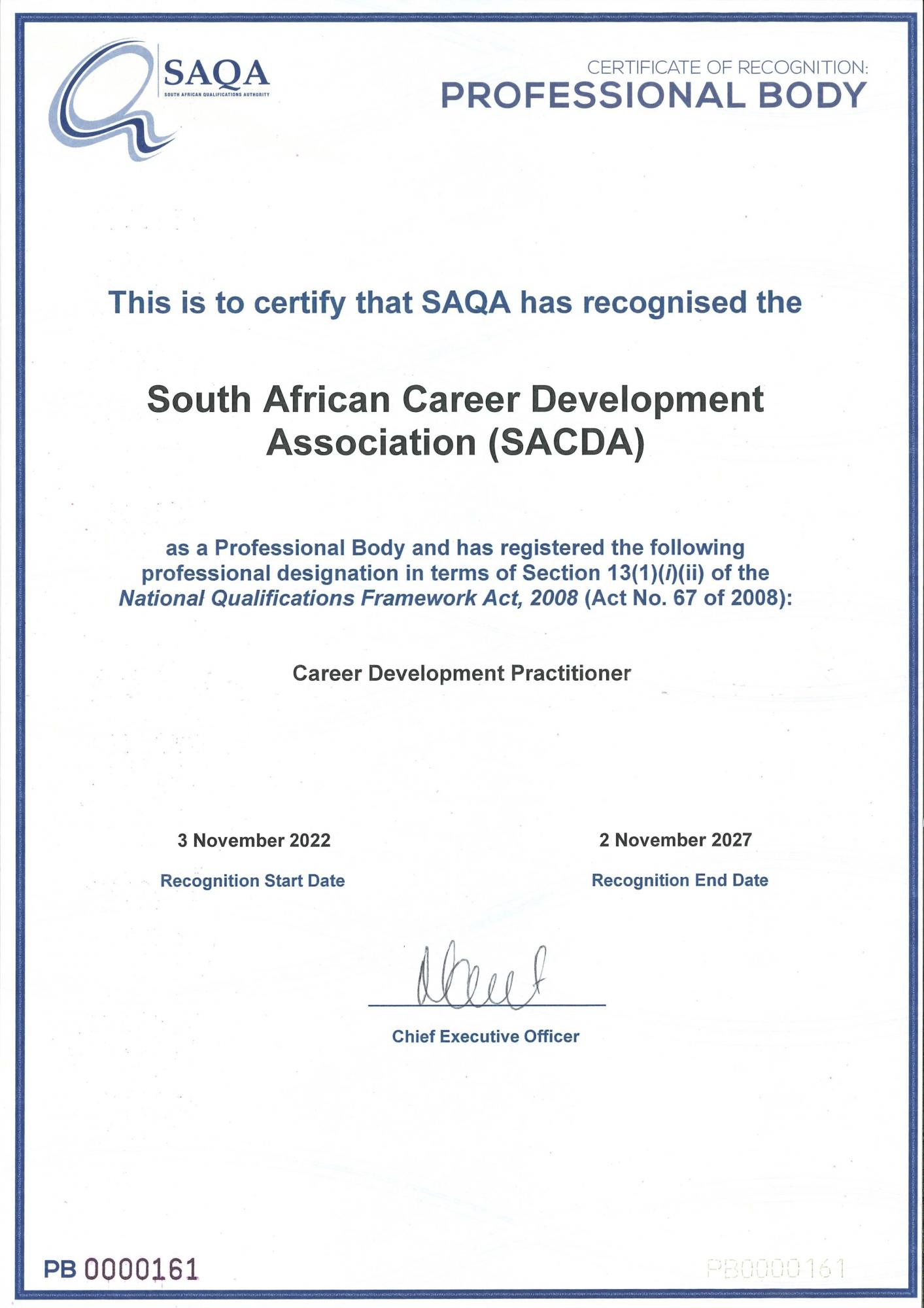
SACDA has been recognised as the Professional Body for Career Development Practitioners in South Africa. This is a process that was initiated in 2015, and has led to SACDA developing all of the systems, policies and structures to operate as a professional body.
A statutory or non-statutory body must, in terms of the NQF Act, Section 13(1)(i)(i-ii), apply to the South African Qualifications Authority (SAQA) for recognition as a professional body and registration of its professional designations.
SAQA defines a professional body as a body of expert practitioners in an occupation or profession resulting in learning in and for the workplace. It further defines a professional designation as a title or status conferred by a professional body in recognition of a person’s expertise and/or right to practice in an occupational field.
At present, SACDA is conferring the designation in the category of career information officer. It is currently working with the Education, Training and Development Practices Sector Education and Training Authority (ETDP SETA), and Department of Higher Education and Training (DHET), to develop an occupational qualification for a career coach. Those competencies will form the basis of the next professional designation.
The list of conferred professional designations of career development practitioners are loaded to the National Qualifications Framework (NQF). To retain ones’ designation, a career development practitioner must complete fifteen (15) Continuous Professional Development (CPD) points each year.
Members are requested to confirm their CPD points status and deadline in their portal.
Career development practitioners are requested to confirm their CPD points deadline in their portal under member status. Should members not complete their CPD or pay their renewal fees in time, they will be given six (6) months to rectify.
Failing which, they will be removed from the register and placed as an affiliate. To renew their registration, the individual will need to motivate for re-consideration, and follow the application process again, should their motivation be found to be acceptable by the registration committee.
At present, there are thirty-one (31) NanoCPD credentials in the members portal. These credentials cover effective communication and ethical behaviour, in line with the Competency Framework for Career Development Practitioners in South Africa. A further fifty-five (55) credentials are being added to the portal to cover all competencies and sub-competencies identified in the framework.
African Journal of Career Development
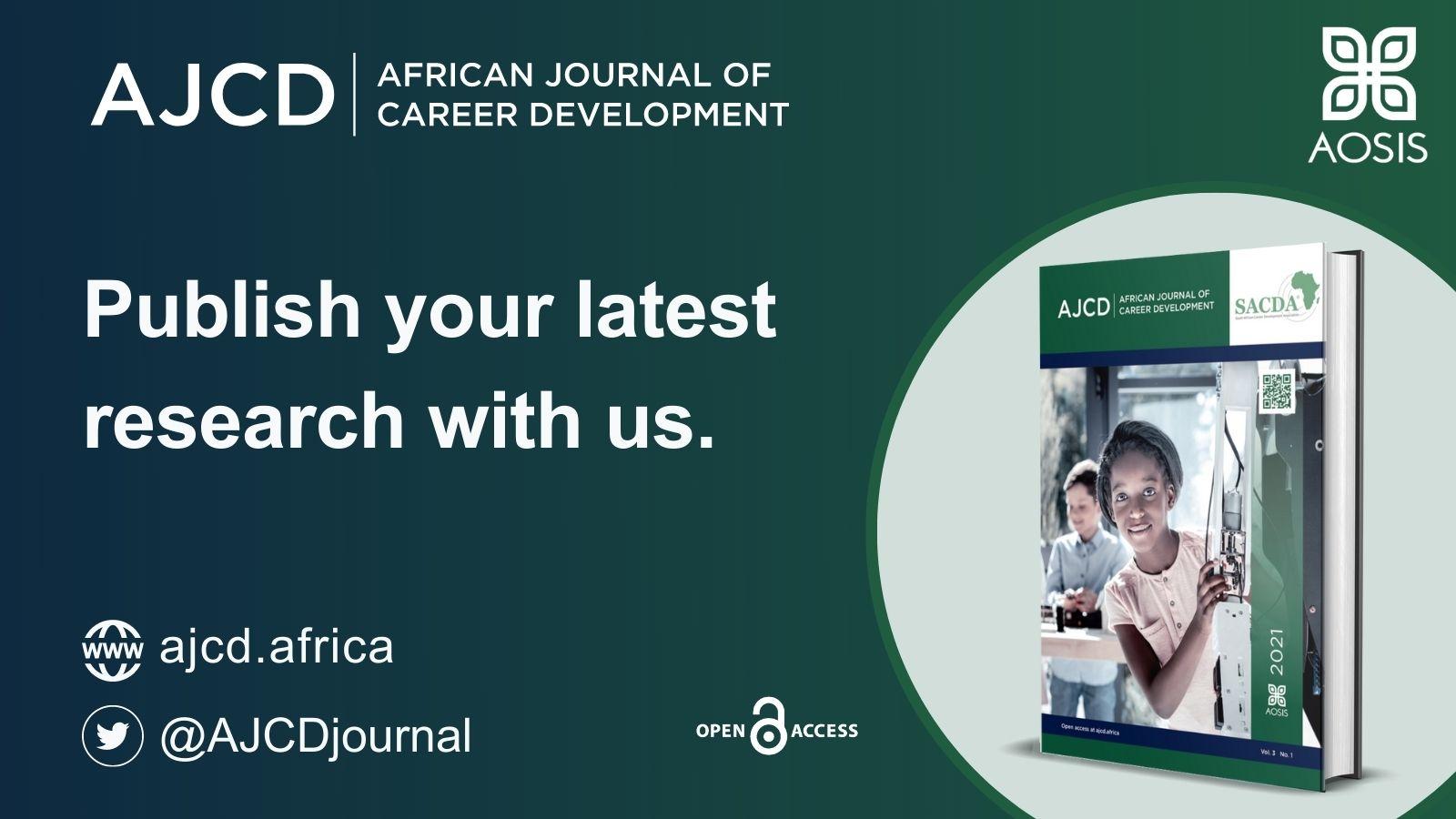
Open for submissions
We would like to invite you to submit a research article to the African Journal of Career Development (AJCD). The AJCD is a peer-reviewed scholarly journal that provides a forum for the dissemination of cutting-edge research relating to career development predominantly in Africa (but also to career development elsewhere in the world). The core aim of the AJCD is to facilitate the reporting of research related to promoting sustainable decent work for all. Here, decent work is regarded as a basic human right for all those who are willing and able to work.
How to submit your manuscript
To submit your latest research findings to this publication, please visit ajcd.africa. Our submission system makes it convenient for authors to submit their manuscripts. We recommend referring to the submission procedure outlined on our website when submitting your original manuscripts. The submission guidelines include information about the types of articles we accept for publication and provide guidance on how to prepare a manuscript for submission.
Accreditation & Indexing
The AJCD is DHET accredited and listed on the Directory of Open Access Journals (DOAJ). Articles published in the journal are included in several indexing services, such as EBSCO Host, GALE, and CENGAGE Learning.
Open access
The AJCD provides immediate access to its content on the principle of making career development research freely available to the world. Published issues of the journal can be accessed online at www.ajcd.africa.
The National Careers Week Campaign in Growing

The National Careers Week campaign is growing from strength to strength with 162 events recorded in May 2023, which supported 19 428 participants. SACDA is working to further establish the campaign in partnership with the Department of Basic Education, Department of Higher Education and Training, and Department of Employment and Labour.
The National Careers Week (NCW) is a one week international campaign that takes place during the month of May each year. The NCW encourages all organisations, departments, municipalities, sector education and training authorities, universities, colleges, schools, preschools and children’s homes to celebrate careers in South Africa by participating in career activities, and sharing resources in person and online.
The NCW has three objectives:
Tertiary Readiness. We have significant challenges in terms of tertiary dropout with about 50% of students dropping out in the first year. When students drop out, the chances for them to re-engage become extremely low. Collectively, we can start getting students ready for their tertiary transition much earlier.
Work Readiness. We will be focusing on assisting citizens to prepare for their transition into work. We tend to guide people towards tertiary studies, thinking it is the only solution. The reality is that we should also be supporting them to access the non-formal, and formal economy.
Life Readiness. We are able to assist people to develop coping mechanisms, build strong networks of relationships, and proactively manage their personal challenges. We can also assist them in managing their own subsistence in a time where work opportunities are scarce.
Governance
The Steering Committee includes the Department of Basic Education (DBE), Department of Higher Education and Training (DHET), Department of Employment and Labour (DEL) and SACDA.
The Coordinating Committee includes all Sector Education and Training Authorities (SETAs), together with a number of civil and industry stakeholders.
NCW 2024
NCW2024 will take place from 13-19 May 2024, but will include all career related events taking place in May, as some stakeholders will be participating in multiple events together over the month.
Event registration will begin from January 2024 at www.nationalcareersweek.co.za. A number of resources will be loaded onto the platform to support the implementation of the campaign by stakeholders.
Build up events for career development practitioners will be hosted in preparation for NCW2024, and we look forward to the exponential growth of this campaign together with you.
Mobilising Career Development Practitioners

The challenge with career development in South Africa is that those who need career support the most are unable to afford it. Career development practitioners in schools, colleges, universities, libraries, organisations and communities need quality resources. To contribute to addressing this challenge, SACDA is partnering with industry to support the career development of its future workforce, while still in basic and tertiary education.
Career development practitioners are on the front line of preparing youth for the world of work. This preparation starts from early childhood development through career education, and continues throughout basic and tertiary education.
Career guidance relates to targeted interventions at key career transitions, such as subject choice, three-stream choice, as well as, tertiary and funding applications, to name a few. These are defining moments in a persons career and requires quality information and competent support.
At present, the majority of youth are exiting basic and tertiary education unprepared for their transition into work, whether into the formal or informal economy.
These individuals should be prepared for such transitions long before they physically take place. Where preparation should not only be seen as once off interventions, but a continuous process of education and guidance.
A common concern from industry is that education is not adequately preparing youth for work. This concern can be further addressed by career development practitioners who implement and maintain career development programmes in schools, and tertiary institutions.
SACDA has initiated a process to begin building relationships with industry to garner financial support through Corporate Social Responsibility. The benefit to companies is not only supporting the career development of learners in general, but the careers of their future specific workforce.
Similar to Outsurance with Pointsmen, and Vodacom with Social Workers and Counsellors, SACDA will be advocating for industry to provide career support to learners in school and tertiary education, through well structured career development programmes, implemented by competent career development practitioners.
Professional Development Opportunities are Increasing

The call for submissions is now open for career development events and resources such as courses, videos and workbooks from external providers. The first round of review will cover materials that are freely available to career development practitioners.
Career development practitioners require quality resources to provide effective career services. These resources can come in many forms, such as courses, videos, and workbooks. SACDA has opened the call for external providers to begin submitting such events and materials for quality assessment and accreditation.
The first round of review will only include resources that have been made freely available to career development practitioners. External providers will be credited on the SACDA website, and in the members portal with a logo and a back-link for events and resources that have passed the quality assurance process. An example of the logo and back-link can be found on the SACDA website under NanoCPD. You can link directly to the example by clicking here.
Once the quality assessment process has been established, SACDA will then open the call for career events and resources from external providers that come at a fee. Career development practitioners will then have the option to select from a wider variety of both paid and free resources.
Kindly note that this quality assessment process does not include career development tools, as this process is being developed by the Department of Higher Education and Training (DHET), in consultation with the Health Professions Council of South Africa (HPCSA), Assessment Standards South Africa (AASA), and SACDA.
For a copy of the guidelines, please click here.
Requirements when applying for accreditation:
- Curriculum vitae of those involved in the development, design, and presentation of the resources. Only those with proven knowledge, skill, and expertise in the areas of training will be considered.
- Clear outline of the event or resources that demonstrate alignment with competencies for career development practitioners, or career development in general.
- Resource title and description. Including any advertising materials that could be used for sharing the resources with members.
- Up to date and relevant references, supporting the resources.
- Notional hours required (if applicable).
- Multiple choice questions to measure competence. Five questions are required per notional hour for training resources.
- Proof of accreditation, if the activity has been accredited through another body.
The quality assessment committee may request further information where necessary.
External providers are welcome to submit their events and resources to info@sacda.org.za.
International Career Development National Peak Body Network
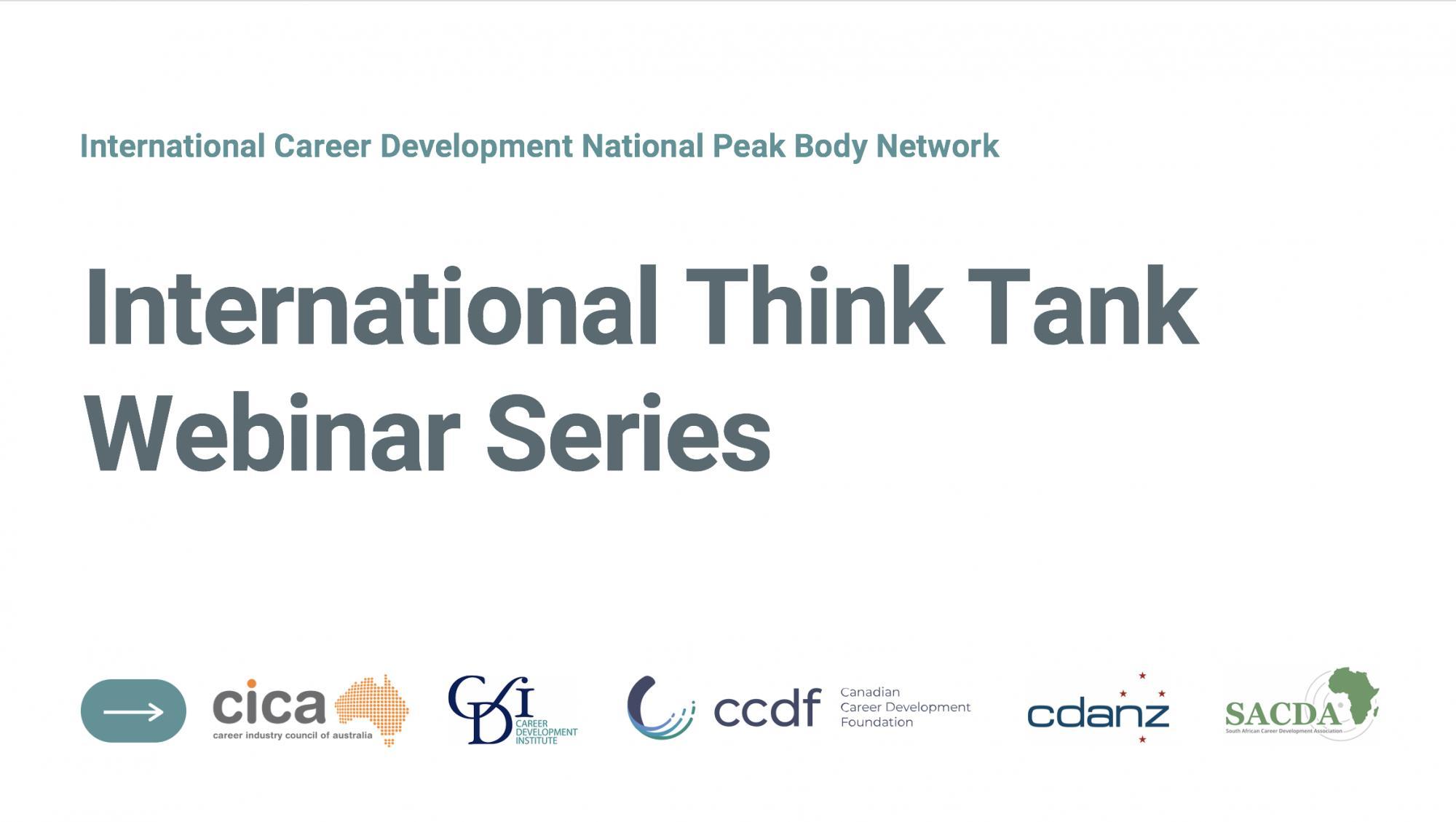
Career development practitioners support a persons’ lifelong process of managing learning, work, leisure, and key transitions, for the purpose of accessing and flourishing within decent and meaningful work.
While career development cannot replace the basic needs of water, food, health, safety and education, it can identify those needs immediately and refer. It can also, during the same time, educate and support citizens on managing their learning, work, leisure, and career transitions.
Career development is well positioned to assist governments, employers, and citizens from the supply side. Career development practitioners are in the unique position to provide career development services in a manner that ensures the values of ethics, access, quality and growth are upheld in managing learning, work, leisure, and career transitions.
The International Career Development Peak Body Network includes the Career Industry Council of Australia, Career Development Institute, Canadian Career Development Foundation, Career Development Association of New Zealand, and SACDA.
Starting from first principles, our focus is on professionalising career development. The history of career development offers insight into its present status and ongoing challenges related to professionalisation. Against this background, how these can influence the construction and reconstruction of how we define ourselves and our profession will be considered.
Training is central to the professionalisation of career development. We must continually prepare career development practitioners who are ready to help their clients navigate complex challenges related to evolving identity, multiple life role’s, continual engagement in learning opportunities, constant adaptation to changes in work, and the ongoing demonstration of proactive job search strategies.
Career theory provides a foundation for our field by offering a broad range of perspectives on career development. Over more than one hundred years, career theories have been proposed, researched, and applied. Our field is now in a position where it is informed by a range of contemporary theories as well as long standing theories that have served the field well, some of which for over half a century.
One of the purposes of theory is to inform practice. A sign of best practice is its grounding in theory. Career theory however, is developed in the contexts of time and place. As career development has expanded beyond its original contexts, consideration has been given to its appropriateness for all people, especially in non-western and developing country contexts.
The profession is coming together internationally to recognise the global nature of the current disruption, with the intention of addressing the common career development issues faced by our communities. We look forward to sharing this journey with you.
Visit www.youtube.com/@careerpractitioners to view the first two think tanks.
Career Counselling to Convert Trauma into Healing
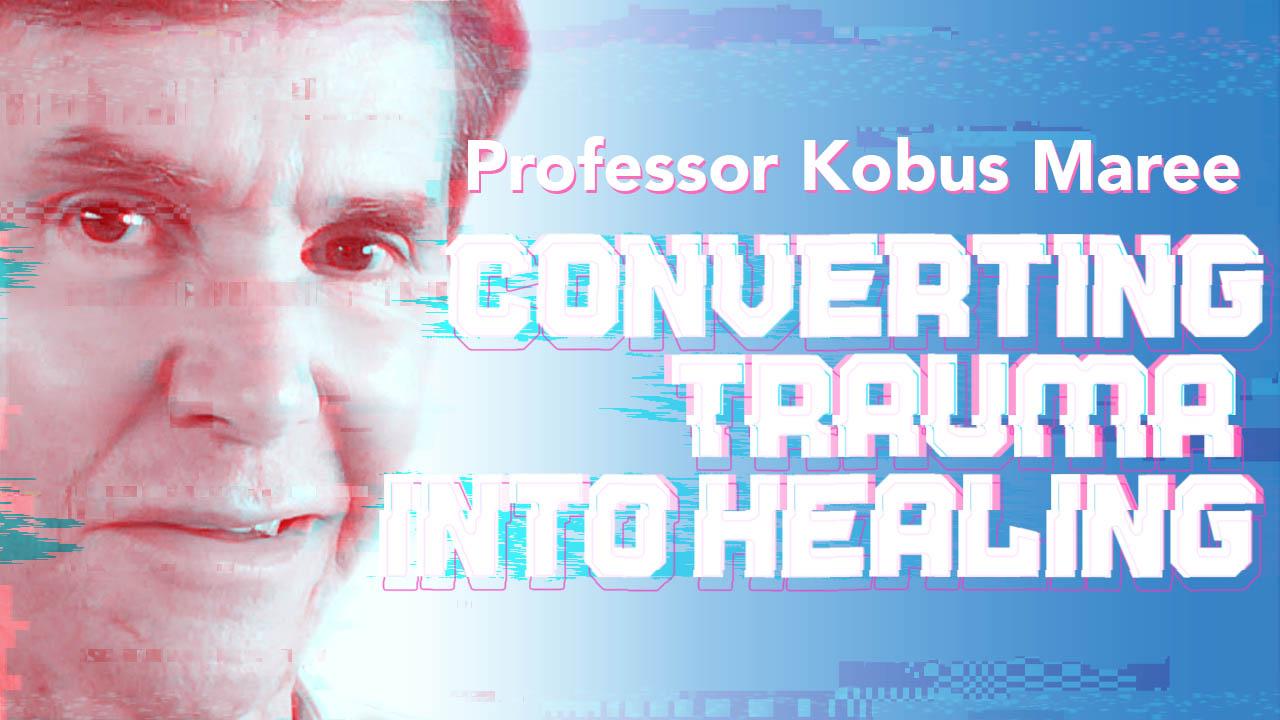
Career counselling is provided by registered counsellors and psychologists. Prof Kobus Maree, the founding Editor-in-Chief of the AJCD, and SACDA board member, will be delivering a public lecture through the University of Johannesburg on innovating career counselling to convert trauma into healing and resolve (career-life) indecision.
Prof Jace Pillay, The South African Research Chair: Education and Care in Childhood invites you to a Public Lecture presented by Prof Kobus Maree Youth in crisis: Innovating career counselling to convert trauma into healing and resolve (career-life) indecision.
Young people increasingly face an uncertain (work) future and become (re-) traumatised. In response to the question “How can I be of help, use, or value to you?”, they mostly respond: “Tell me what to do …”, “I am unsure about my future …”, and “Guide me …”
These responses serve as a proxy for asking counsellors to help them rekindle their sense of meaning, purpose, career resilience, wellbeing, and hope in today’s shifting occupational contexts.
Our goal should be to shed light on and integrate their conscious knowledge about themselves and on their subconsciously regulated views on their preferred future career choice.
In addition, their psychological selves should be enhanced. The paper discusses strategies to achieve these goals in the Anthropocene and ‘the new world of work’.
Career Development Webinars will be starting in Spring
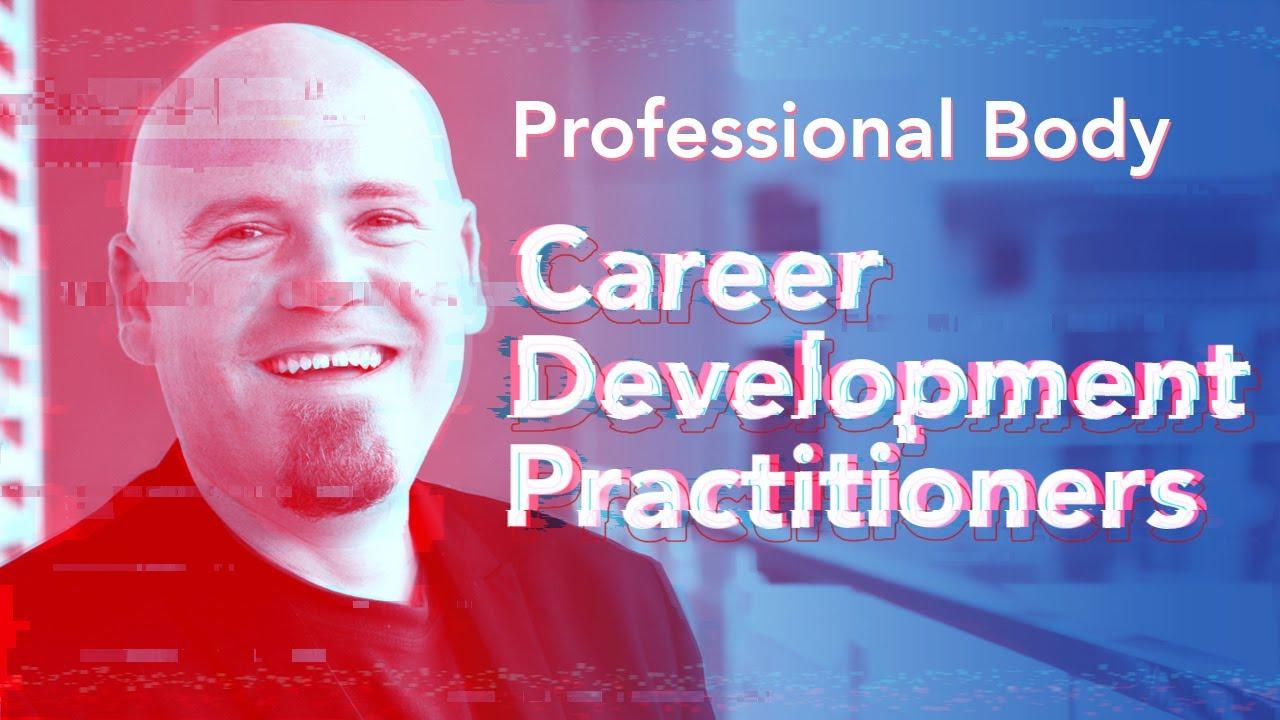
Career development webinars will start from September 2023. These events will also be made available through member portals for those who are unable to attend the live event. The focus of these webinars will be on real situations, practical solutions, and valuable take-aways, further to CPD points.
We are introducing CPD categories further to the competency framework, which will include categories such as subject choice, funding applications, three-streams selection, informal jobs, formal jobs, job applications, employability skills, life design, the national careers week, and much more. The focus of these webinars will be on best practices by career development practitioners.
Join us on this journey of professionalisation.
YouTube: www.youtube.com/@careerpractitioners
Threads: www.threads.net/@careerpractitioners
Instagram: www.instagram.com/careerpractitioners
Facebook: www.facebook.com/careerpractitioners

Latest News
- SACDA News 2023
- SACDA News 2022
- International Think Tank Webinar 2
- International Think Tank Webinar 1
- Bi-Annual South African Congress of Career Practitioners 2021
- Careers in Curriculum
- Growth through Sector Education
- Growth through NanoCPD
- SACDA News 2020
- Quality through Homegrown Interventions
- Access through a Community Approach
- Access through Professional Designation
- Back to Basics
- Professional Boundaries in Career Services
- Employer requirements and employability mindsets
- Farewell Thandeka Langa
- Inaugural Congress for Career Development Practitioners
- SACDA Privacy Policy
- SACDA News 2018
- Code of Ethics
